Invited Speakers
Stephen Heatley: Learning Methods. Addressing Habits of Thinking and Action
 Stephen Heatley has worked in the professional theatre for over 45 years as an actor, performer, playwright, dramaturge, educator and, primarily, a stage director. He holds an Honours BA in Drama and English from Brock University, a Diploma in Mime for the Actor from the Canadian Mime School, and a Master of Fine Arts in Directing from the University of Alberta. During his 12 years as Artistic Director of Theatre Network in Edmonton, he produced 50 world premieres, 30 of which he directed himself. He also spent five years as Associate Artistic Director of the Citadel Theatre in Edmonton where he ran the Theatre School as well as directing regularly for the company. Stephen joined the faculty of the Department of Theatre and Film at UBC in 1999 where he has taught acting, directing and playwrighting. He is an Elizabeth Sterling Haynes Award winner for Excellence in Directing in Edmonton, and the 2013 recipient of the Dorothy Somerset Award for Development in the Performing Arts at UBC. Stephen has been Head of the Department of Theatre and Film since July 1, 2015.
Stephen Heatley has worked in the professional theatre for over 45 years as an actor, performer, playwright, dramaturge, educator and, primarily, a stage director. He holds an Honours BA in Drama and English from Brock University, a Diploma in Mime for the Actor from the Canadian Mime School, and a Master of Fine Arts in Directing from the University of Alberta. During his 12 years as Artistic Director of Theatre Network in Edmonton, he produced 50 world premieres, 30 of which he directed himself. He also spent five years as Associate Artistic Director of the Citadel Theatre in Edmonton where he ran the Theatre School as well as directing regularly for the company. Stephen joined the faculty of the Department of Theatre and Film at UBC in 1999 where he has taught acting, directing and playwrighting. He is an Elizabeth Sterling Haynes Award winner for Excellence in Directing in Edmonton, and the 2013 recipient of the Dorothy Somerset Award for Development in the Performing Arts at UBC. Stephen has been Head of the Department of Theatre and Film since July 1, 2015.
Bill Torbert and Aftab Erfran: Learning for Timely Action: An Introduction to the Cybernetics of Collaborative Developmental Action Inquiry (CDAI)
 Bill Torbert is Professor Emeritus at Boston College and on the Boards of Global Leadership Associates and the Amara Collaboration. Recent recognitions include: the 2012 re-publication of his 2005 HBR article “Seven Transformations of Leadership” as one of Harvard Business Review’s top ten leadership reads ever; the 2013 Center for Creative Leadership Walter F. Ulmer Jr. Award for Career Contributions to Applied Leadership Research; the 2014 Chris Argyris Career Achievement Award from the Academy of Management; and the translation of his 2004 book Action Inquiry into Chinese and Japanese. Having taken his B.A. and PhD. Degrees at Yale, he later directed the Theatre of Inquiry, taught at Southern Methodist University and Harvard, and held numerous consulting and board positions, while developing a new paradigm of social science and social action named Collaborative Developmental Action Inquiry.
Bill Torbert is Professor Emeritus at Boston College and on the Boards of Global Leadership Associates and the Amara Collaboration. Recent recognitions include: the 2012 re-publication of his 2005 HBR article “Seven Transformations of Leadership” as one of Harvard Business Review’s top ten leadership reads ever; the 2013 Center for Creative Leadership Walter F. Ulmer Jr. Award for Career Contributions to Applied Leadership Research; the 2014 Chris Argyris Career Achievement Award from the Academy of Management; and the translation of his 2004 book Action Inquiry into Chinese and Japanese. Having taken his B.A. and PhD. Degrees at Yale, he later directed the Theatre of Inquiry, taught at Southern Methodist University and Harvard, and held numerous consulting and board positions, while developing a new paradigm of social science and social action named Collaborative Developmental Action Inquiry.
 Aftab Erfan is the Director of Dialogue and Conflict Engagement at the University of British Columbia, where she is on a mission to build capacity among 75,000 students, faculty and staff to engage more productively with deep differences among them. Aftab comes from a background in environmental sciences, fine arts, and urban planning, and has identified as an activist most of her life. She came to know Action Inquiry, primarily as an approach to research, while working on a PhD dissertation in Indigenous community development that was equally based in first, second and third person inquiry. Aftab’s dissertation is the winner of Don Schön award for Best Use of Reflective Practice (2012) and SSHRC Storytellers Award for Research for a Better Life (2013). Her 2017 paper “Confronting collective traumas: an exploration of therapeutic planning” was short listed as one of five best papers of the year by the Association of European Schools of Planning.
Aftab Erfan is the Director of Dialogue and Conflict Engagement at the University of British Columbia, where she is on a mission to build capacity among 75,000 students, faculty and staff to engage more productively with deep differences among them. Aftab comes from a background in environmental sciences, fine arts, and urban planning, and has identified as an activist most of her life. She came to know Action Inquiry, primarily as an approach to research, while working on a PhD dissertation in Indigenous community development that was equally based in first, second and third person inquiry. Aftab’s dissertation is the winner of Don Schön award for Best Use of Reflective Practice (2012) and SSHRC Storytellers Award for Research for a Better Life (2013). Her 2017 paper “Confronting collective traumas: an exploration of therapeutic planning” was short listed as one of five best papers of the year by the Association of European Schools of Planning.
Warren Mansell: Can Perceptual Control Theory (PCT) Deliver the Promises of Cybernetics?
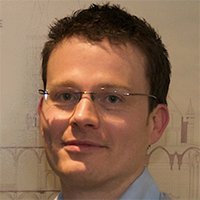 Dr Warren Mansell is a Reader in Clinical Psychology at University of Manchester, UK, and is the author of over 200 publications. He has been researching and applying PCT since 2005, including work on evaluating Method of Levels psychotherapy, developing and testing transdiagnostic group interventions for mental health problems, empowering conversation in dementia, computational modelling of human action control and testing software for robotic systems. He has also drawn upon PCT to address the replication crisis within psychology and the behavioural sciences.
Dr Warren Mansell is a Reader in Clinical Psychology at University of Manchester, UK, and is the author of over 200 publications. He has been researching and applying PCT since 2005, including work on evaluating Method of Levels psychotherapy, developing and testing transdiagnostic group interventions for mental health problems, empowering conversation in dementia, computational modelling of human action control and testing software for robotic systems. He has also drawn upon PCT to address the replication crisis within psychology and the behavioural sciences.
Bernhard Riecke and Patrick Pennefather: A Fun Palace: Cybernetics, Feed(loops)back and Mixed Reality
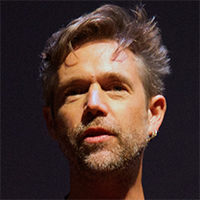 After researching for a decade in the Virtual Reality Group of the Max Planck Institute for Biological Cybernetics in Tübingen, Germany and working as a post-doctoral researcher at Vanderbilt University and UC Santa Barbara, Bernhard joined SFU-SIAT in 2008, where he leads the iSpace lab. His research combines multidisciplinary research approaches and immersive virtual environments to investigate: Human spatial cognition/orientation/updating/navigation; Enabling robust and effortless spatial orientation in VR; Self-motion perception, illusions (“vection”), and simulation; Designing for transformative positive experiences using VR.
After researching for a decade in the Virtual Reality Group of the Max Planck Institute for Biological Cybernetics in Tübingen, Germany and working as a post-doctoral researcher at Vanderbilt University and UC Santa Barbara, Bernhard joined SFU-SIAT in 2008, where he leads the iSpace lab. His research combines multidisciplinary research approaches and immersive virtual environments to investigate: Human spatial cognition/orientation/updating/navigation; Enabling robust and effortless spatial orientation in VR; Self-motion perception, illusions (“vection”), and simulation; Designing for transformative positive experiences using VR.
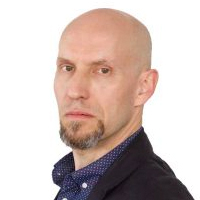 Never odd or even; believing himself to have been conceived as a palindrome, Pennefather engages in real and x realities to create interactive mixed (up) realities. Trained in the art of sound design, clown and scholar, he provokes new interactions, persistently focused on the UX of design, live production, software development, teaching, writing and co-created uncategorizables. He’s worked with/for/at/ MicroEAUbismallstageUBCMcOlympicElectricBalletBCLCUSDOA and many other acronyms in the colonialized nations of Canada, US, China, Japan, and others. www.patrickpennefather.com
Never odd or even; believing himself to have been conceived as a palindrome, Pennefather engages in real and x realities to create interactive mixed (up) realities. Trained in the art of sound design, clown and scholar, he provokes new interactions, persistently focused on the UX of design, live production, software development, teaching, writing and co-created uncategorizables. He’s worked with/for/at/ MicroEAUbismallstageUBCMcOlympicElectricBalletBCLCUSDOA and many other acronyms in the colonialized nations of Canada, US, China, Japan, and others. www.patrickpennefather.com
Richard Marken: Behavior Through Control Theory Glasses
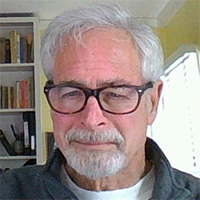 Richard S. Marken, Ph.D., is a research psychologist, human factors engineer and statistical consultant. Dr. Marken was Associate Professor and Chairman of the Department of Psychology at Augsburg College in Minneapolis, Minnesota. He also consulted at Honeywell, Inc. on statistical, methodological and human factors issues related to workspace design and human- computer interface technology. Dr. Marken had a 15-year career as an Engineering Specialist at The Aerospace Corporation in El Segundo, CA where he developed methods for rapidly prototyping and evaluating designs for the human-computer interface component of satellite ground control systems. He then spent 5 years as a Senior Behavioral Scientist at the RAND Corporation in Santa Monica, CA where he led research projects on health care quality issues and pilot training system design. Dr. Marken is currently working as a human factors and statistical consultant as well as teaching part-time. Throughout his career Dr. Marken has carried on a research program aimed at testing William T. Powers’ perceptual control theory (PCT) model of purposeful behavior. He is the author of over 50 papers and five books on PCT psychology including Controlling People: The Paradoxical Nature of Being Human (with counseling psychologist Timothy A. Carey).
Richard S. Marken, Ph.D., is a research psychologist, human factors engineer and statistical consultant. Dr. Marken was Associate Professor and Chairman of the Department of Psychology at Augsburg College in Minneapolis, Minnesota. He also consulted at Honeywell, Inc. on statistical, methodological and human factors issues related to workspace design and human- computer interface technology. Dr. Marken had a 15-year career as an Engineering Specialist at The Aerospace Corporation in El Segundo, CA where he developed methods for rapidly prototyping and evaluating designs for the human-computer interface component of satellite ground control systems. He then spent 5 years as a Senior Behavioral Scientist at the RAND Corporation in Santa Monica, CA where he led research projects on health care quality issues and pilot training system design. Dr. Marken is currently working as a human factors and statistical consultant as well as teaching part-time. Throughout his career Dr. Marken has carried on a research program aimed at testing William T. Powers’ perceptual control theory (PCT) model of purposeful behavior. He is the author of over 50 papers and five books on PCT psychology including Controlling People: The Paradoxical Nature of Being Human (with counseling psychologist Timothy A. Carey).
Robert F. Woollard: Unrequited Love: Cybernetics and the Promotion of Health
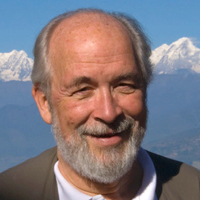 Dr Woollard is Professor of Family Practice at UBC. He has extensive national and international experience in the fields of medical education, the social accountability of medical schools, ecosystem approaches to health, and sustainable development. He is actively involved in Nepal with a new national medical school, school of public health, and nursing school founded on the principles of social accountability, and also works in East Africa on matters of social accountability, primary care, and accreditation systems. He co-chairs the Global Consensus on Social Accountability for Medical Schools (GCSA) and does extensive work in this area with many international bodies. He was a lead organizer for the World Summit on Social Accountability that led to the Tunis Declaration. His primary research focus is the study of complex adaptive systems as they apply to the intersection between human and environmental health. His book, “Fatal Consumption: Rethinking Sustainable Development” details some of his work in this regard. He is Associate Director of Rural Coordination Centre of BC (RCCbc). He also provides central leadership in the development of a Canadian national strategy for addressing educational and service needs for surgical and obstetrical services in rural Canada—in particular Aboriginal service access for birthing. He was instrumental in establishing the mobile clinic for agricultural workers and continues the active practice of medicine. Above all he is a husband, father and grandfather.
Dr Woollard is Professor of Family Practice at UBC. He has extensive national and international experience in the fields of medical education, the social accountability of medical schools, ecosystem approaches to health, and sustainable development. He is actively involved in Nepal with a new national medical school, school of public health, and nursing school founded on the principles of social accountability, and also works in East Africa on matters of social accountability, primary care, and accreditation systems. He co-chairs the Global Consensus on Social Accountability for Medical Schools (GCSA) and does extensive work in this area with many international bodies. He was a lead organizer for the World Summit on Social Accountability that led to the Tunis Declaration. His primary research focus is the study of complex adaptive systems as they apply to the intersection between human and environmental health. His book, “Fatal Consumption: Rethinking Sustainable Development” details some of his work in this regard. He is Associate Director of Rural Coordination Centre of BC (RCCbc). He also provides central leadership in the development of a Canadian national strategy for addressing educational and service needs for surgical and obstetrical services in rural Canada—in particular Aboriginal service access for birthing. He was instrumental in establishing the mobile clinic for agricultural workers and continues the active practice of medicine. Above all he is a husband, father and grandfather.
Gerald Midgley: A Systems Theory of Marginalization and its Implications for Systemic Intervention
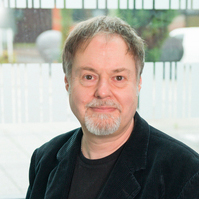 Gerald Midgley is Professor of Systems Thinking in the Centre for Systems Studies, Business School, University of Hull, UK. He also holds Adjunct Professorships at the University of Queensland, Australia; Mälardalen University, Sweden; the University of Canterbury, New Zealand; and Victoria University of Wellington, New Zealand. He has held research leadership roles in both academia and government, having spent ten years as Director of the Centre for Systems Studies at Hull, and seven years as a Senior Science Leader in the Institute for Environmental Science and Research (ESR), New Zealand. Gerald has written over 300 papers for academics and practitioners on systems thinking, community operational research and conflict management, and has been involved in a wide variety of public sector, community development, technology foresight and resource management projects. He was the 2013/14 President of the International Society for the Systems Sciences, and has written or edited 11 books. These include Systemic Intervention: Philosophy, Methodology, and Practice (Kluwer, 2000); Systems Thinking, Volumes I-IV (Sage, 2003); Community Operational Research: OR and Systems Thinking for Community Development (Kluwer, 2004); and Forensic DNA Evidence on Trial: Science and Uncertainty in the Courtroom (Emergent, 2011). Gerald is also the editor of a new Systems Thinking book series for Routledge, with the first titles due out later in 2019.
Gerald Midgley is Professor of Systems Thinking in the Centre for Systems Studies, Business School, University of Hull, UK. He also holds Adjunct Professorships at the University of Queensland, Australia; Mälardalen University, Sweden; the University of Canterbury, New Zealand; and Victoria University of Wellington, New Zealand. He has held research leadership roles in both academia and government, having spent ten years as Director of the Centre for Systems Studies at Hull, and seven years as a Senior Science Leader in the Institute for Environmental Science and Research (ESR), New Zealand. Gerald has written over 300 papers for academics and practitioners on systems thinking, community operational research and conflict management, and has been involved in a wide variety of public sector, community development, technology foresight and resource management projects. He was the 2013/14 President of the International Society for the Systems Sciences, and has written or edited 11 books. These include Systemic Intervention: Philosophy, Methodology, and Practice (Kluwer, 2000); Systems Thinking, Volumes I-IV (Sage, 2003); Community Operational Research: OR and Systems Thinking for Community Development (Kluwer, 2004); and Forensic DNA Evidence on Trial: Science and Uncertainty in the Courtroom (Emergent, 2011). Gerald is also the editor of a new Systems Thinking book series for Routledge, with the first titles due out later in 2019.
Michael Lissack: The Philosphy of “As-If”: Applying Ethics to Second and Third Order Cybernetics
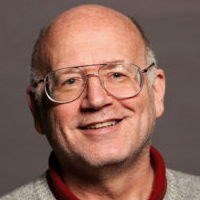 Michael Lissack is the President of the American Society for Cybernetics. For 20 years Dr. Lissack was the executive director of the Institute for the Study of Coherence and Emergence (ISCE). He presently is a Professor of Design and Innovation at Tongi University (Shanghai) and was the first Walter J. Hickel Professor at Alaska Pacific University. Dr. Lissack founded both a non-profit research institute and a charity for artists, launched an international PhD program in corporate anthropology, has written half dozen books, been a successful Wall Street banker, and a candidate for public office. He has taught at a number of academic institutions in the US and Europe, run sixteen international conferences on the topics of explanation, complexity, management, health care, entanglement and ethics and founded a successful academic journal (E:CO). Worth Magazine recognized Dr. Lissack as one of “Wall Street’s 25 Smartest Players” in 1999 and as one of the 100 Americans who have most influenced “how we think about money” in 2001. His most recent invention – an Internet research reference librarian replacement can be found at http://epi-search.com. His efforts to help prevent sexual assaults, domestic violence, and bullying can be found at http://empoweringvictims.org.
Michael Lissack is the President of the American Society for Cybernetics. For 20 years Dr. Lissack was the executive director of the Institute for the Study of Coherence and Emergence (ISCE). He presently is a Professor of Design and Innovation at Tongi University (Shanghai) and was the first Walter J. Hickel Professor at Alaska Pacific University. Dr. Lissack founded both a non-profit research institute and a charity for artists, launched an international PhD program in corporate anthropology, has written half dozen books, been a successful Wall Street banker, and a candidate for public office. He has taught at a number of academic institutions in the US and Europe, run sixteen international conferences on the topics of explanation, complexity, management, health care, entanglement and ethics and founded a successful academic journal (E:CO). Worth Magazine recognized Dr. Lissack as one of “Wall Street’s 25 Smartest Players” in 1999 and as one of the 100 Americans who have most influenced “how we think about money” in 2001. His most recent invention – an Internet research reference librarian replacement can be found at http://epi-search.com. His efforts to help prevent sexual assaults, domestic violence, and bullying can be found at http://empoweringvictims.org.